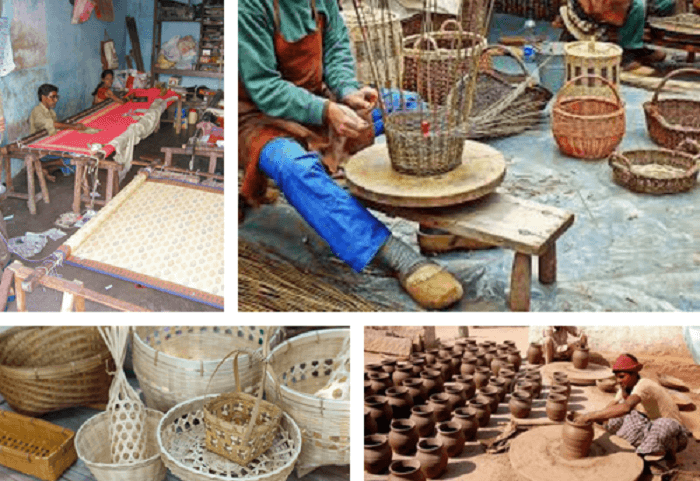
Cottage manufacturing, also known as household industries, refers to small-scale production units operated within the home or a small workspace. These industries have been prevalent in many parts of the world, particularly in rural areas, for centuries. Here are some of the features of cottage manufacturing or household industries:
- Small-scale production: Cottage manufacturing typically involves small-scale production of goods or services, often using traditional or manual methods. Production is usually done by one or a few individuals or family members, and the scale of production is limited by the available resources.
- Low investment: The capital investment required to start a household industry is relatively low, as most of the equipment and tools are already available within the home or can be purchased at a low cost. This makes it an attractive option for individuals with limited financial resources.
- Flexibility: Cottage manufacturing offers flexibility in terms of work hours and production schedules. The work can be done at any time of the day or night, and the production can be adjusted to meet the demand and availability of raw materials.
- Local production: Household industries often produce goods that are intended for local consumption, such as handicrafts, textiles, and food products. This can help to support local economies and create employment opportunities in rural areas.
- Customization: Cottage manufacturing allows for greater customization of goods and services to meet the specific needs and preferences of customers. This can lead to the production of unique and high-quality products that are difficult to replicate in large-scale manufacturing.
- Limited market access: Cottage manufacturing often faces limited market access due to lack of marketing and distribution channels. As a result, the income generated from household industries is often limited and irregular.
- Lack of formal training: Most of the skills and knowledge required for cottage manufacturing are acquired through informal learning and apprenticeships, rather than formal training. This can limit the quality and consistency of the goods produced.
In summary, cottage manufacturing or household industries offer a flexible and low-cost option for small-scale production of goods and services, particularly in rural areas. However, it faces challenges related to limited market access and lack of formal training, which can limit its growth potential.